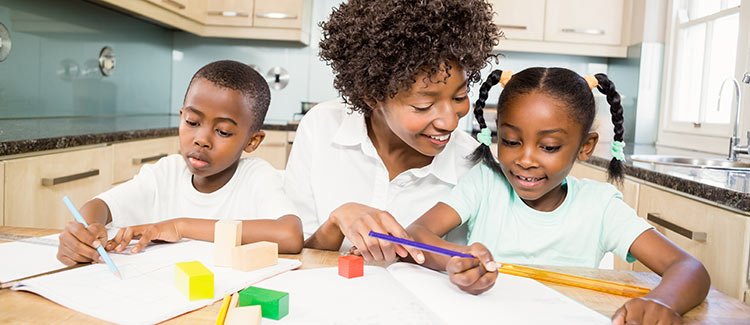Shop At Haya: Your Ultimate Shopping Guide
Discover the best shopping tips, trends, and deals for a smarter buying experience.
Homeschooling: Where the Kitchen Becomes the Classroom
Discover how to turn your kitchen into an engaging classroom! Unleash creativity and learning with homeschooling tips and tasty activities.
Creative Cooking Lessons: How to Teach Science and Math in the Kitchen
Creative Cooking Lessons offer a unique opportunity to blend education with culinary fun. When teaching science and math in the kitchen, instructors can engage students with hands-on activities that make learning enjoyable. For instance, measuring ingredients provides a practical way to practice fractions and ratios. As students scoop, pour, and mix, they are naturally calculating proportions and understanding the concept of volume. Additionally, discussing chemical reactions that occur during cooking—such as caramelization or fermentation—can spark curiosity about the underlying scientific principles.
To further enhance the learning experience, consider incorporating experiments into your cooking lessons. For example, students can explore temperature changes by baking different batches of cookies at various oven settings, observing how heat affects texture and flavor. You could also introduce basic geometry by cutting fruits and vegetables into various shapes, prompting discussions about angles and symmetry. By transforming the kitchen into a creative classroom, you not only teach essential science and math concepts but also inspire a lifelong interest in cooking and learning.

10 Fun and Educational Kitchen Activities for Your Homeschool Curriculum
Incorporating fun and educational kitchen activities into your homeschool curriculum can create a hands-on learning experience that engages children while teaching valuable life skills. Here are 10 fun and educational kitchen activities to consider:
- Baking Bread: Teach your children about measurements and chemical reactions through the process of baking. They will learn about yeast fermentation and how ingredients come together to create delicious bread.
- Grocery Store Math: Take a field trip to the grocery store and practice math skills through budgeting and tallying costs of items on your shopping list.
- Kitchen Science Experiments: Conduct simple experiments like vinegar and baking soda volcanoes to demonstrate chemical reactions, while discussing the science behind the phenomena.
- Cultural Cooking Days: Explore different cultures by preparing traditional dishes from various countries, introducing concepts of geography and cultural appreciation.
- Nutrition Education: Teach your kids about healthy eating by discussing the food pyramid and how to balance their meals while cooking a nutritious dish.
As your children engage in these fun and educational kitchen activities, they'll not only develop cooking skills but also improve their critical thinking, math, and science abilities. Here are a few more to consider:
- Measurement Mastery: Involve your children in measuring ingredients to help them understand fractions and volume.
- Food Art: Encourage creativity by letting your kids design their own plates, using fruits and vegetables to create colorful and artistic meals.
- Cooking with Measurements: Challenge them to convert recipes from one measurement system to another, enhancing their math skills.
- Planting a Herb Garden: Teach responsibility and biology by having children plant and care for an herb garden that they can later use in cooking.
- Food Preservation Techniques: Introduce age-appropriate methods of food preservation such as freezing, canning, or pickling to teach about food science and storage.
How to Transform Everyday Cooking into Engaging Learning Experiences for Kids
Cooking with kids can be more than just meal preparation; it can be an engaging learning experience that fosters creativity and crucial life skills. Start by involving them in simple tasks that correspond with their age and ability, such as measuring ingredients, mixing, or arranging food. These activities not only help develop fine motor skills but also teach basic math and science concepts. For instance, when measuring flour, children can learn about volume and fractions, turning the kitchen into a dynamic classroom.
To make the cooking experience even more enriching, try to incorporate themed cooking days based on different cultures or historical events. Create a list of recipes from around the world and assign a different theme each week. This can spark conversations about geography, history, and traditions. Furthermore, use cooking as an opportunity to discuss nutrition and healthy eating habits by explaining the benefits of the ingredients used. By transforming everyday cooking into a multifaceted learning experience, you can make both cooking and education enjoyable for everyone involved.